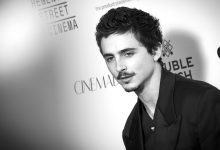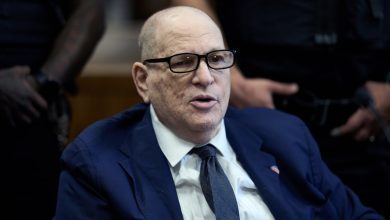Paula Beer on ‘Mirrors No. 3,’ Her Fourth Film With Christian Petzold and His Ensemble Approach
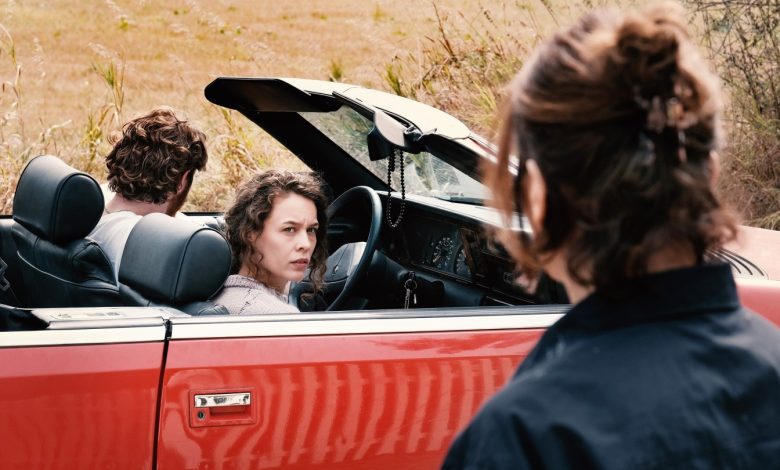
Mirrors No. 3 (Miroirs No. 3), the new feature from German director Christian Petzold that world premieres in the Directors’ Fortnight, an independent sidebar of the Cannes Film Festival, on Saturday, May 17, marks his fourth collaboration with German star Paula Beer after Transit (2018), Undine (2020), and Afire (2023).
The Match Factory closed multiple international deals for the movie just before Cannes.
Beer, who has also made a name for herself with the likes of François Ozon’s Frantz (2016), Florian Henckel von Donnersmarck’s Never Look Away (2018), won the Silver Bear for best actress at the Berlin International Film Festival and the European Film Award for best actress for her role in Undine.
In Mirrors No. 3, Beer plays piano student Laura. “On a weekend trip to the countryside, Laura miraculously survives a car crash,” reads a synopsis of the film. “Physically unhurt but deeply shaken, she is taken in by a local woman who witnessed the accident and now cares for Laura with motherly devotion. When her husband and adult son also give up their initial resistance to Laura’s presence, the four of them slowly build up a family-like routine. But soon they can no longer ignore their past.”
Barbara Auer, Matthias Brandt, and Enno Trebs are also part of the ensemble cast.
Ahead of the film’s premiere, the 30-year-old Beer talked to THR‘s Georg Szalai about her latest team-up with Petzold, why she likes working with him, her approach to acting, and why she dislikes movies with open endings.
You have worked with Christian Petzold several times now and also have experience with the other actors in Mirrors No. 3 since they are also Petzold regulars. What do you like about his approach and his sets?
The very special thing about working with Christian is that we’re working like an ensemble. You know the people you’re going to work with, and not only the cast members. It’s also the crew who are always the same, or at least the head of is always the same. So you really come into a very familiar situation, and that, of course, helps a lot in opening up and having a feeling of trust during your work. Most of the time, when you go to a shoot, there are so many people, sometimes hundreds of people, and you need to get to know them. If you already know them and don’t … need to build trust, of course, that helps you as an actor to be more at ease.
Christian is always doing, or most of the time only doing, one take. Most directors, because we’re shooting with digital cameras and you can do as many takes as you want, they do more, which doesn’t necessarily cost more. So he’s really into one take, and it’s really concentrated and precise. But of course, that puts a lot of pressure on you, because you only have this one shot.
So on the first shoot for Transit, I was still asking myself: “Is that going in the right direction, or do I really feel comfortable in this style of working, or does Christian really like what I’m doing?” And now that we have done four films together, I don’t have these questions anymore. Our relationship has developed a lot. I think we have a very good relationship where we trust each other, and at the same time, we can make jokes about each other, and it’s not too serious. So sometimes I’m going to Christian saying, “Well, I think we should do a second take. For me, it wasn’t the best take.” And then he’s like: “Yeah, okay, you can have a second one.” And then most of the time he says: “Okay, you were right. It’s good. We’ll take the second one.”
So, for me, it feels more like a collaboration. Most of the time during shooting, I do feel that as an actor, I’m in this chain of where the story comes from. There’s a head in front of me who has the story in mind, and I’m helping make this vision come alive, but I’m part of making it come alive.
Do you still read scripts he sends you or just go for any role he has in mind for you?
Just because we have done four movies already doesn’t mean I will be in the next one, because I’m afraid that that could lead to a huge disappointment. So I always say to him, I need to read the script. And normally, he starts talking about his next projects during the shooting of the last one. So he always has an idea of what he’s going to do next. And then we always have this little moment when he says: “I’m thinking about this idea for my next movie.” And then he sums up the story in five minutes and gives me a mini pitch. And then he’s like: “What do you think? Do you like it?” And then I say: “Yeah, I mean, these five minutes sound good. So he’s really letting me in and sharing his thoughts and his process.
But then, of course, he writes it on his own and sends me this book when it’s ready. Christian’s scripts are really special because they feel more like literature. Normally, scripts are quite technical. I really love reading his scripts. You sit down and you read the novel, but I still need to understand it, or [see] if I understood correctly what you want to tell with that story, because I can have my interpretation. So I need this check-up to know if you’re on the same page to tell the story.
It was the same with Mirrors No. 3. I had some questions or ideas or input for some scenes, and then we talked about it, and he adopted it – not 100 percent but we met in the middle.
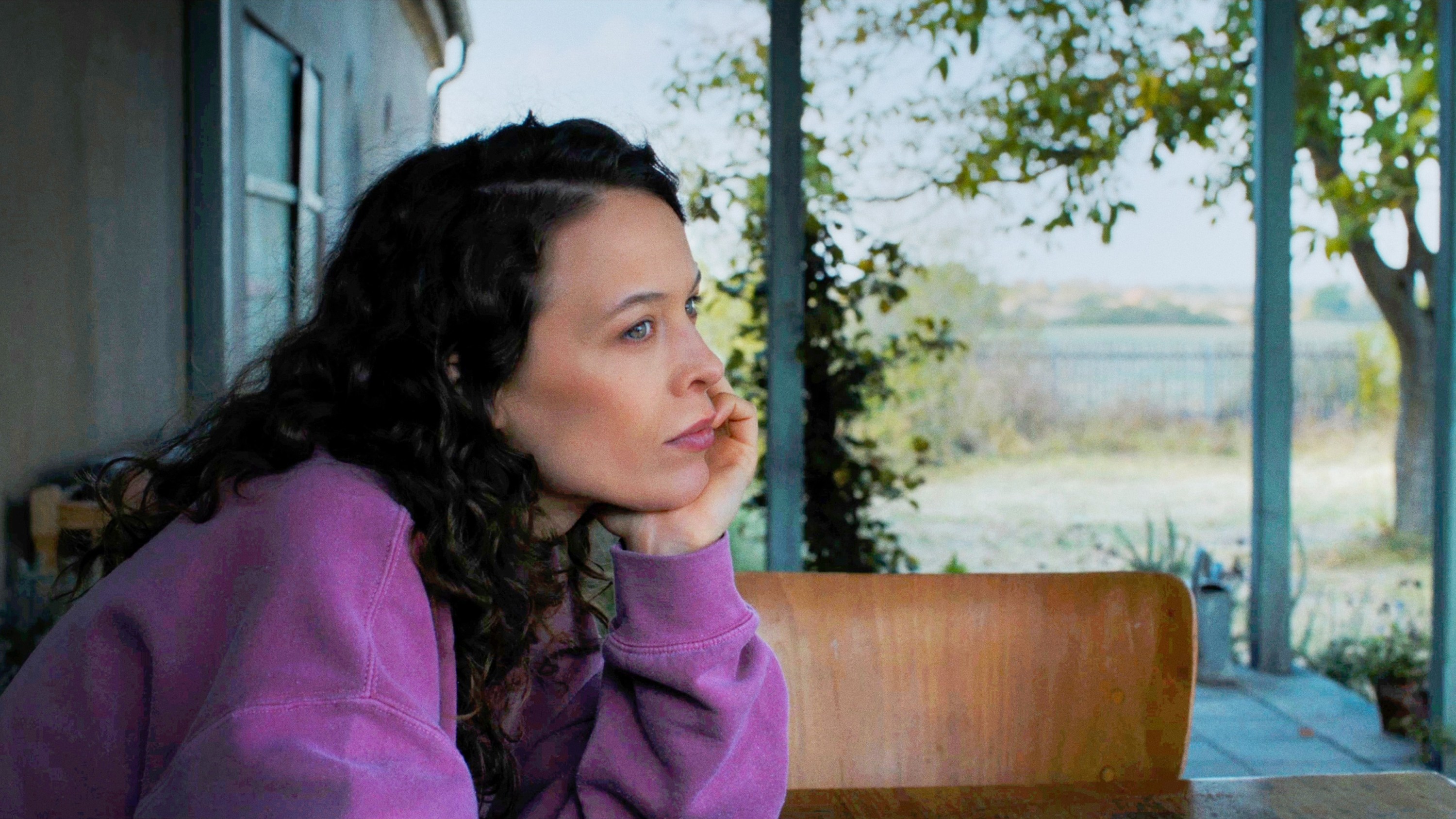
Laura seems full of trauma and emptiness, like she is maybe missing true connections or something else in her life. And your portrayal evoked quite contradictory emotions. You leave viewers with a lot of complex feelings. How did you approach Laura?
I think it starts with the way Christian writes his books. I always feel that it’s a story about a human being, and human beings are super complex and not easy to understand. And that’s always the difficulty. When I start preparing for Christian’s movies, it feels like a story about someone, and it’s not a fictional character. It’s really more about a human being, and [I try] to grab and understand this human being to build a character. You can’t understand all parts. The characters Christian is writing are always “she’s somehow like this, but then she’s like that,” and I have to build a bridge between them.
Comparing when I first shot with Christian to [later work together], I realized my acting was changing, because I really feel at ease, and I’m trusting him a lot. I feel really safe shooting these movies, and there’s never pressure, or you never have this moment of “we need to proceed, because we don’t have enough time.” I think that how Christian writes his books, and how he starts shooting, how the production organizes the shoots, affects a lot how the movies are in the end. And I think that helps to create characters that are not flat.
We really have the time to develop that on set. I think before working with Christian, I was really precise and kind of a perfectionist when it came to my preparation for my characters. And now working with Christian, I realized that it’s not all about being perfectly prepared, but also about being brave enough to open up completely on set and maybe do something that you would have never expected, or that wasn’t your idea for the scene for that very day.
Shooting with Christian is also about reacting very spontaneously to what happens in that very moment. And I think that helps a lot to create a complex human setup, because every day is different. And if you’re not trying to pretend that it isn’t like that, but you just accept that every day is different, I think it influences the character. So, I don’t have a master plan to have a super-complex character. But there are so many topics inside of Christian’s scripts, such as, as you said, trauma and emptiness and grief or lack of grief or not being able to accept feelings or feelings lost.
When I saw the movie title Mirrors No. 3 (Mirrors No. 3), I thought: “Wait, isn’t this the title of a musical piece?” But I had to look up details and found that it is part of a five-movement suite for solo piano by French composer Maurice Ravel. (Entitled “A Boat on the Ocean,” it was written to evoke a boat sailing on the ocean.) Did you know anything about music or learn anything about it for this role? And does th
I do play the piano, and started having lessons when I was six. It would have been different for me if [my character] played the flute or something. I would have been: “I don’t even know how to hold it.” And I do know Ravel, but I’ve never played Ravel because that is quite above my league. I’m not able to play Ravel because it’s a masterpiece. But I’ve learned the beginning, so what I’m playing in a scene, I’m actually playing. But for me, it was really important to have this connection to the piano, because Laura, of course, is studying the piano. I think people who nowadays study a classical instrument have a certain thing in common, and that you can’t ignore.
I had a great teacher for my preparation. She finished her master’s and played Ravel as well. It helped a lot seeing her play, and I had to watch piano players a lot, because I think how you play your instrument says a lot about your relationship to the instrument. In one movie, I played a ballet dancer. Now a piano student, and sometimes it does feel like a burden, because you’re an actor, and my job is to pretend to be someone who’s perfect at doing that. I wanted to create the image of a piano student, but that comes with the pressure of fulfilling what piano students are able to do, and I can never do that. But getting a feeling for what their love for this instrument, or their passion, or their frustration, is like, I think that’s my job. So I focus mostly on the emotional part, because I don’t want to create too much pressure for myself, because in the end, it’s a movie, and we’re creating images, and, of course, feelings through these images.
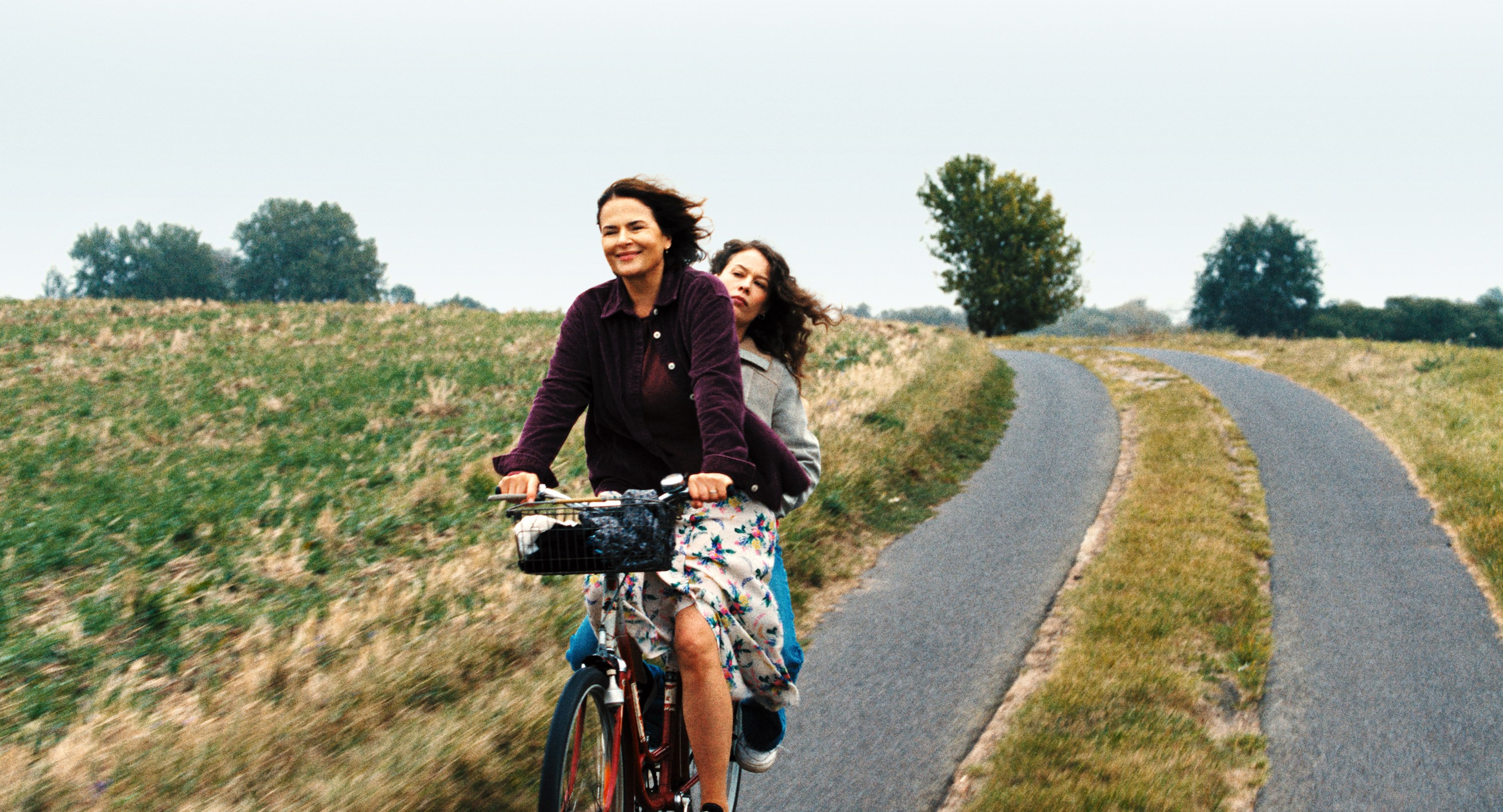
You mentioned pressure. I remember that French auteur Francois Ozon once described you as “the next Romy Schneider,” which is a huge compliment, especially in the French- and German-speaking worlds. Was that joy or pressure? How did you experience that comparison?
I think they said that a lot in France, and I just took it as a compliment. I think if you do comparisons, it’s always because you want to make something strange more familiar. I don’t think I look like her. I make different things. But I’m German. She was German. And she went to France, so that’s what we have in common. If they look at my [acting] and they feel reminded of her, of course, that’s a huge compliment. Maybe it’s because I started shooting when I was really young that I didn’t take this as pressure.
I had one shoot, and a few days before the first day, I thought: “I have no idea why they picked me, and I absolutely don’t feel ready to play this, and I don’t know if it’s going to be good.” And then I thought: “Well, they decided to take me. I didn’t ask them to make me play the role. So if I’m going to fuck it up, it’s actually their problem and wrong decision.” And I kind of kept that [perspective].
But for me, pressure comes on set because you know that you only have a certain amount of time, and you know that everyone expects you to be good within this time frame. You only have these two or three hours, and with the angle or [type of shot], maybe 20 minutes. And if you’re not brilliant in these 20 minutes, then your shot won’t be. So, I feel making movies is about being ready at the right time. And of course, that is pressure, and you have to be able to deal with that.
Christian Petzold’s movies tend not to end in a way that puts a bow on things but leaves things more open for interpretation. How do you feel about the endings of movies?
Personally, I hate open endings. I have gotten better, but I had a time when I never finished novels and always left 50 to 70 pages at the end, because I don’t like when a story comes to an end and you don’t like the ending. I prefer to stay in the vibe. Actually, the ending to Mirrors No. 3 is different from the [original] script. I remember we were meeting Christian before the shoot and talking about the ending.
I said maybe it’s a bit too pathetic [or dramatic] and doesn’t really fit the vibe of the tragedy of this character. During the edit, Christian realized that the ending isn’t working. So we shot the new ending in January of this year.
Has he already pitched you on your fifth movie together?
I know Christian’s next idea. Maybe he’s thinking of me for it, but I’m not sure if it’s clear to him. I really like the story, so who knows?! For now, nothing is set.
Source: Hollywoodreporter
HiCelebNews online magazine publishes interesting content every day in the celebrity section of the entertainment category. Follow us to read the latest news.
Related Posts
- Natalia Bryant Graduates Cum Laude from the University of Southern California — and Mom Vanessa Bryant Celebrates: 'So Proud'
- Why Charlize Theron Thinks Uma Thurman Should’ve Won an Oscar for ‘Kill Bill’
- U2 Legend Bono on Freedom, Democracy, Apple TV+ Documentary
- Amazon’s ‘The Bondsman’ Canceled After One Season
- John Mellencamp Honors Republic Records at Grammy Hall of Fame Gala

